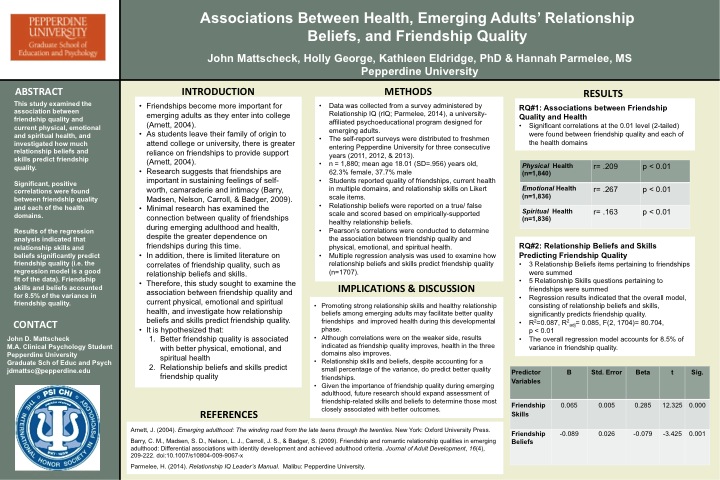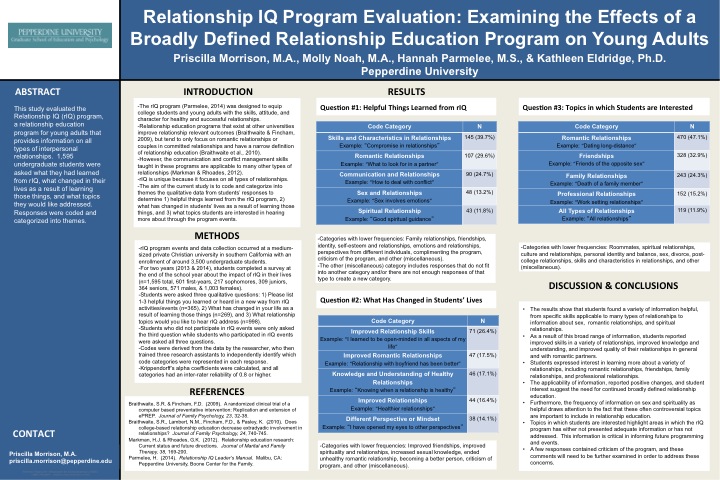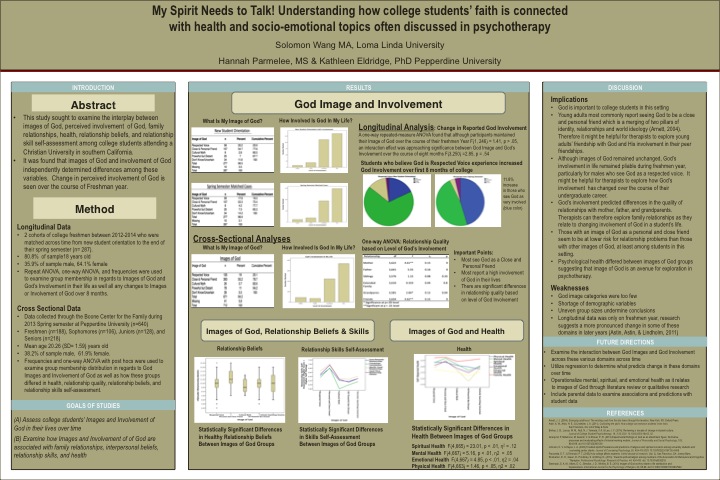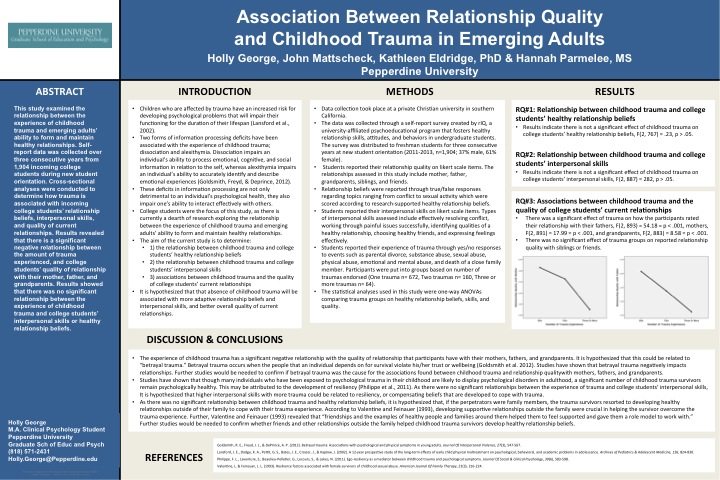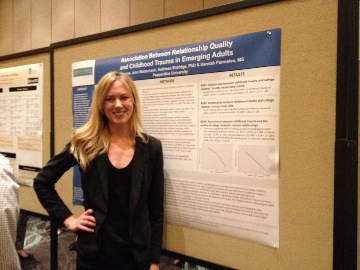By: John Mattscheck, MA
Description
Friendships become more important for emerging adults (teens to early twenties) as
they enter into college (Arnett, 2004). As students leave home to attend college or
university, there is a greater reliance on friendships to provide support. Research
suggests that friendships are important in sustaining feelings of self-worth, camaraderie
and intimacy (Barry, Madsen, Nelson, Carroll, & Badger, 2009). However, little research
has actually examined the connection between quality of friendships during emerging
adulthood and health, despite the greater dependence on friendships during this time.
There is also limited literature on the connection between friendship quality, and
relationship beliefs and skills for emerging adults. Thus, Relationship IQ (rIQ) sought
to examine the association between friendship quality and current physical, emotional
and spiritual health, and investigate how relationship beliefs and skills impact friendship
quality.
Through research analysis, Relationship IQ (rIQ) found significant associations between
friendship quality and physical, emotional, and spiritual health. This indicates as
friendship quality improves, health in the three domains also improves. Through another
research analysis, rIQ found that several relationship beliefs and skills (representative
of healthy beliefs and strong skills) significantly impact friendship quality. However,
the 3 relationships beliefs and the 5 relationship skills tested only accounted for
8.5% of the variance in friendship quality. Meaning, the several relationship skills
and beliefs tested, despite accounting for a small percentage of the variance, can
help lead to better quality friendships. Overall, promoting strong relationship skills
and healthy relationship beliefs among emerging adults may facilitate better quality
friendships and improved health during this developmental phase.
Poster presented at WPA, May 2015
